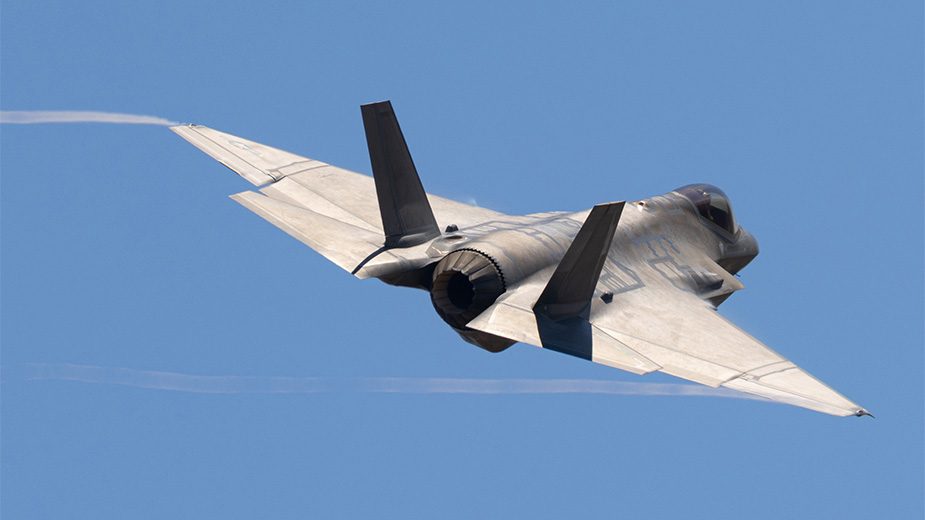Another Carrier Raises Objection to ADI’s Certificate
VIENNA TOWNSHIP, Ohio — Less than a week after federal regulators approved Aerodynamics Inc.’s request to provide service to Youngstown-Warren Regional Airport, another carrier has cme forward with an objection to the approval.
Executive Express Aviation LLC filed the objection Wednesday to the U.S. Department of Transportation’s Jan. 28 issuance of its order awarding a certificate of public convenience and necessity to ADI. The certification will permit ADI to provide scheduled daily service between the Vienna Township regional airport and Chicago O’Hare International Airport. Service is expected to begin this spring.
“With unclean hands,” Executive Express Aviation’s objection charges, ADI owner John Beardsley wishes DOT “to believe that there have been no ‘charges of unfair, deceptive, or anti-competitive business practices, or of any fraud, felony, or anti-trust violations brought against any of [the parties involved in the case.]’ Perhaps that was the case last month; it is not the case today.”
DOT’s order last week followed the agency’s tentative finding Nov. 30 in favor of ADI, which applied in December 2014 for the certificate to provide the Chicago service to Youngstown-Warren. During the comment period that followed, James Paquette of Warrenton, Va., and Via Airlines Inc., claimed that ADI Acquisition Co. had defaulted on a $400,000 promissory note, raising a “major red flag” as to ADI’s fitness.
A month later, ADI responded that the objection was moot because the note had been paid in full and claimed that it was filed against ADI in retaliation for ADI fling and obtaining relief in a federal lawsuit involving Via Airlines for, among other issues, breach of contract.
DOT initially balked at issuing the certificate because of a civil fraud finding by then-ADI owner Scott Beale and questioned ADI’s fitness to operate. Beale last year sold ADI to a partnership owned John and Janet Beardsley.
John Beardsley also is owner and chairman of SeaPort Airlines.
According to the newly filed objection, SeaPort, which provided Essential Air Service (EAS) to markets in the Mid-South region, starting in 2014 had ceased or was asked to discontinue operations at several airports due to “lack of ability to perform.” In September 2015, in danger of losing more routes, it entered into a “wet-lease contract” with EEA to provide service on four routes it was attempting to retain. Under the agreement, EEA was to receive the EAS subsidy SeaPort received while SeaPort received the ticket revenue and paid all taxes.
For the first two months, SeaPort invoiced DOT for the services it provided and EEA provided on its behalf, and passed the subsidy along when it received it from DOT per the agreement. On Jan. 12, SeaPort received the EAS subsidy but did not make its payment to EEA by the Jan. 15 deadline. On Jan. 16, Seaport announced the cancellation of all its flights, except select EAS routes in Arkansas and Oregon.
“To any outside observer, it should be quite apparent that Mr. Beardsley, upon recognition that he was about to be granted a scheduled [c]ertificate for ADI, immediately began shifting focus and resources from SeaPort to ADI,” the objection states. “He has used Seaport as a vehicle for receiving revenue form the [d]epartment but has failed to pay the vendors who generated said revenue in his behalf.”
Based on precedent, the objection states, Beardsley “will not operate ADI in the public interest, but will instead have a greater opportunity to abuse the public trust [50] passengers at a time instead of nine passengers at a time.” EEA also called on DOT to “fully investigate the unethical transfer of funds received by SeaPort.”
In its response, also filed Wednesday, ADI called on DOT to dismiss the “unauthorized objection,” asserting that it centers on a contract dispute between EEA and SeaPort and “has nothing to do with ADI.”
According to ADI’s request to dismiss the objection, ADI and SeaPort, although they have “common ownership,” are “separate business and legal entities and separate air carriers.” The filing characterized EEA’s attempt to “conjoin” the two companies as “improper and invalid.”
ADI also said the “compelling showing” of its “financial wherewithal in support of its application” did not rely on SeaPort funds.
“At its core,” EEA’s objection “is about a private commercial contract dispute between EEA and SeaPort that has nothing to do with ADI,” and DOT “has for many decades made clear it does not act as an arbiter to resolve commercial disputes.”
Copyright 2024 The Business Journal, Youngstown, Ohio.



